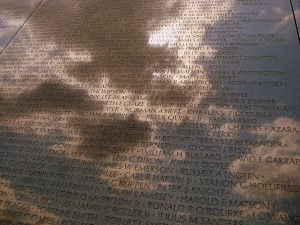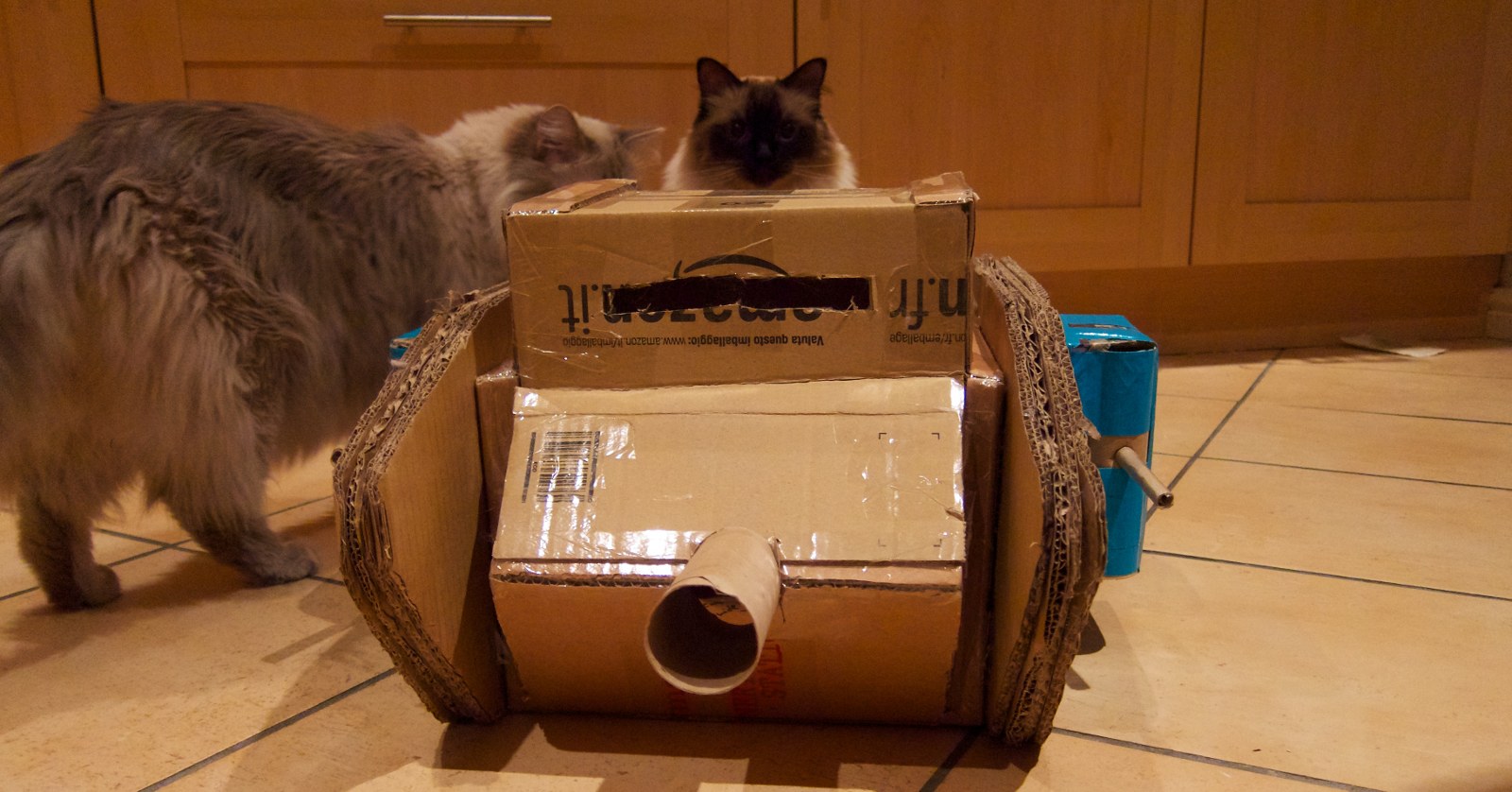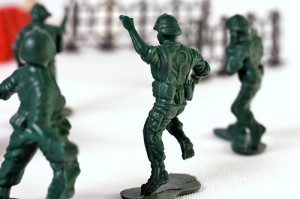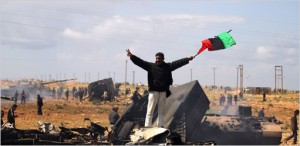Cats of War. Continue reading
war
 March 29th is Vietnam Veterans Day. It marks the day the last American combat troops were finally withdrawn from Vietnam, forty years ago.
March 29th is Vietnam Veterans Day. It marks the day the last American combat troops were finally withdrawn from Vietnam, forty years ago.
Well, not all of them. 1600 troops are still officially missing in Vietnam.
I grew up with Vietnam hanging over my family. My grandmother was a Gold Star Mother, which is what the government calls you when you’ve lost a child in war. She never rode in the Veterans Day parades on that sad float with all the other mothers in Belmont, Massachusetts (not Mitt Romney’s side of town) who had lost their sons. But Uncle Allan’s name is etched in granite in the town square. Continue reading
“Ma, I have good news and bad news, which do you want first?
“Bad news, let’s get it over with.”
“I’m failing all of my classes.”
“So what’s the good news?”
“I joined the Army.”
After spending more than eighteen months of pre-trial confinement in a military prison, most of it under “maximum custody,” alleged WikiLeaks source Bradley Manning has finally begun the judicial process in a military court.
In the second day of his (UCMJ) Article 32 pre-trial hearing, it was revealed that the affidavit that served as the basis for his arrest appears to have been based in large part on unconfirmed or erroneous information.
Time for the seventies! Although it is my least favorite decade music-wise it did have some good songs! Also, there are no dead animal pictures in this post. Continue reading
 The big news today is Rod Blagojevich got his ass handed to him in court yesterday. A jury found him guilty of 17 corruption charges. “I, frankly, am stunned,” said Blagojevich as he left the court house. There is a number of other things happening also including plenty of war crimes.
The big news today is Rod Blagojevich got his ass handed to him in court yesterday. A jury found him guilty of 17 corruption charges. “I, frankly, am stunned,” said Blagojevich as he left the court house. There is a number of other things happening also including plenty of war crimes.
“It is my opinion that absent Rio Tinto’s mining activity on Bougainville or its insistence that the Panguna mine be re-opened, the government would not have engaged in hostilities or taken military action on the island.”
”Because of Rio Tinto’s financial influence in PNG, the company controlled the government.”
”The government of PNG followed Rio Tinto’s instructions and carried out its requests … BCL was directly involved in the military operations on Bougainville, and it played an active role. BCL supplied helicopters, which were used as gunships, the pilots, troop transportation, fuel and troop barracks.”
– Sir Michael Somare Continue reading
In 1977 Joe Strummer sang that hate and war are the only things we got today and it’s hard not to think that, man, how some things never change. Although, then he goes on to sing about “wops” and “kebab greeks” and the song seems to be about “wars” between different ethnic groups in England and it sounds as though Joe doesn’t like foreigners at all. He could have been saying that stuff as parody, though, who knows. Have a listen for yourself as you read today’s headlines which happen to have a lot of war in them. Continue reading
Yesterday the Colombian Senate passed landmark legislation aimed at compensating victims of the 50 years of civil war that have devastated the country. The decades of conflict have killed nearly a quarter of a million people and have left more than three million Colombians internally displaced as they have sought to escape violence between rebels, paramilitaries, drug cartels, and government troops. The Victim’s Law aims to give financial compensation for victims of the conflict, as well as allowing for resettlement of displaced Colombians. Continue reading
For the second time in less than a decade, the United States is engaged in military actions against a Middle Eastern country. Since the passage of Resolution 1973 and the subsequent military actions, reported yesterday by Ken, a number of people have expressed uneasiness at the idea that Libya could “turn into another Iraq.” That’s understandable. I don’t think anyone, except possibly Tony Blair, wants another Iraq. But, this is a serious concern. So, in a two part series, I’m going to consider how the situation in Libya is similar and different from the Iraq invasion and, finally, whether, notwithstanding current distinctions, Libya could become another Iraq. Part I of the series will deal with how the situation in Libya is similar to Iraq.
How Libya Is Another Iraq
The Region- The most obvious similarity between Libya and Iraq is one of geography and religion- both countries are in the Middle East and have majority Arab Muslim populations. It’s easy to dismiss this as glossing over a number of important differences, but I would caution against such an approach. The fact is that it does matter to many people that the US and our Western allies seem selectively focused on the Middle East while ignoring human rights abuses and humanitarian crises in other parts of the world (Burma, for example).
This criticism is similar to that levied against the International Criminal Court (ICC)’s selective prosecutions of only African conflicts. Skepticism on this issue can undermine how the world, and more importantly Arab populations, view the legitimacy of the UN and US actions and potentially re-raise a number of the neo-colonialism charges that so damaged America’s reputation from the handling of the Iraq invasion and subsequent occupation.
No Fly Zone Again– The US and her allies established and enforced two separate NFZs over Iraq from 1992 until the “conclusion” of the Iraq invasion in 2003 (once the US officially occupied Iraq under our “rebuilding” rationale, the NFZ was quickly lifted). Like the Libyan NFZ, the Iraq NFZs were premised on humanitarian grounds, specifically to protect civilians, the Kurdish populations in the North and the Shiite Muslims in the South.
The Usual Suspects Advocating Military Force in the Middle East- Just as with Security Council Resolution 1441 (declaring Iraq to be in material breach of WMD disarmament and the pre-text for the US/UK unilateral invasion), Resolution 1973 was co-sponsored and heavily supported by the UK and US. The Iraq NFZs were also jointly operated by the US and UK (with Turkish participation). There are non-nefarious explanations for this, mainly the reality of which countries have the military resources to actually enforce anything the UN authorizes and whose support is therefore critical.
The recent history of the US and UK in Iraq is also the reason you may be hearing people refer to fears of “mission creep”- the steady expansion of a military mission beyond its original mandate and purpose. Resolution 1973 is limited in its scope and mission and expressly bars any ground occupation. But, Resolution 1441 expressly did not authorize invading Iraq, yet that didn’t prevent the US and UK from dishonestly using it for that purpose. The UN, like any organization, is only as effective, disciplined and honest as the nation states that make up its membership. For this reason, many view any US/UK advocacy for military involvement in the Middle East with a great deal of alarm and question the “real” motivations of these two countries’ constant warmongering positions.
Middle Eastern Countries’ Participation- The Arab League’s endorsement of the Libyan NFZ has been hailed as a remarkable step and a move that inoculates Western powers from neo-colonialism claims in attacking Libya.
The Arab League never endorsed, as a group, the Iraq NFZs or the Iraq invasion, but these events did have Middle Eastern nations’ participation. Turkey officially participated in the Iraq NFZ enforcement, twice passing legislation extending Turkey’s military involvement. And, while technically no Middle Eastern country was included in the “Coalition of the Willing,” Bahrain, Kuwait and Qatar all allowed the US and UK military to launch the Iraq invasion from their countries and provided air and ground access into Iraq. While Arab League members’ involvement in the NFZ is substantially greater (Qatar and UAE jets are involved in enforcement actions over Libya), their involvement, in itself, does not particularly distinguish Libya from Iraq.
Western Accountability Lacking Again– Saddam Hussein was prosecuted for crimes against humanity by the Iraqi Provisional government. However, his conviction and death sentence was based solely on the murder of 148 Shiites following a failed assassination attempt in 1982. Left out of the trials was any evidence related to crimes against humanity that were carried out with American provided weaponry and, in some cases, with US knowledge that the arms and weaponry would be used against civilian populations. Documents declassified by the National Security Archive spell out US involvement in installing and arming Hussein and, as reported by the Washington Post, “Americans drafted many of the statutes under which Hussein and his associates [were] tried.”
The US and UK, like with Iraq, have provided Gaddafi with many of the arms his military is using in committing potential crimes against humanity. Resolution 1970 gives the ICC jurisdiction to investigate these crimes, but is limited, some would say specifically to avoid US and UK accountability, to actions after February 15, 2011.

For the reasons listed above and many others, many people watching the situation in Libya feel a creeping sense of déjà vu as these similarities revive unpleasant memories and serve as a powerful reminder that the noblest intentions (I’m being charitable here!) can lead to great, potentially irreparable harm. With that in mind, the second and final installment in this series will focus on why the situation in Libya is not like Iraq, but also acknowledge how it could become, in the future, the next Iraq.
Read More
For an excellent interactive feature on the Iraq NFZs, see here.
For an overview of the Iraq NFZs enforcement, questionable legality and a list of US/UK military strikes in Iraq based on NFZ breaches, see here.






